Exceptional Dogs
Service is in their Blood
The Best Dogs are Bred to Serve
Top-tier PPH dogs are special from the start. It’s no secret that Golden Retrievers, Labrador Retrievers and mixes of the two are the best dogs for a life of service and at PPH, our pups are specifically bred to become champion service dogs. All of our dogs are purpose bred, meaning they are bred to have specific characteristics such as a calm temperament that give them the best possible chance of success. These characteristics are passed down from generation to generation, so the best dogs have the best puppies who grow up to the be the best service dogs.
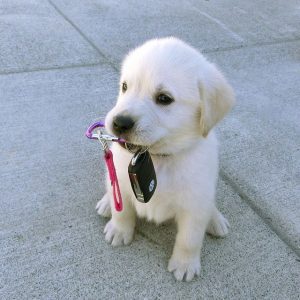
Once an expectant mother dog is within the last week of pregnancy, the PPH team of staff and veterinarians begin the whelping process. This means a pregnant dog never gives birth alone, which is important to ensure all puppies have the greatest chance of survival. And like when a human baby is born, it’s important to have capable medical help to make sure all the pups and mother are healthy.
It’s a glorious day when another litter of healthy PPH puppies enters the world!
Successful service dogs come from a lineage of successful service dogs. They have certain characteristics, like gentleness and intelligence. The best dogs have the ability to resist innate dog urges like sniffing. They can adapt to the many places and many faces that a mobility impaired Warrior goes in society. The day we get new litter of pups is an exciting one because it is the first day of their journey to becoming service dogs and improving the lives of Warriors.
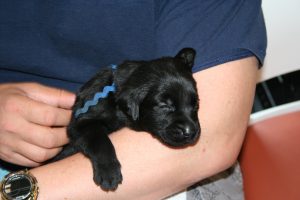
Service Dogs in Training
Training a service dog begins at about three weeks of age with Warriors, staff, and volunteers dedicated to socializing and preparing these young pups to become loving and loyal service companions.
Some of these young service dogs in training are selected to participate in the PPH program where their temperament and physical characteristics make them ideal service dog candidates for Warriors. It costs PPH $35,000 to fully train a service dog that will be placed with a wounded Warrior.
Selecting the best dogs that are bred and fostered to be socially responsive and engaging is key. The best dogs make PPH’s Canine Assisted Warrior Therapy, successful. But keep in mind, Service Members affected by PTSD often isolate and resist interaction with others. Purpose-bred traits of these dogs make it very difficult for our patients to isolate or resist the safe relationships offered by loving and non-judgmental companions. As these dogs mature and acquire service dog skills, PPH staff will evaluate their progress and finalize training. Some will be placed at no cost with a Warrior with combat-related disabilities while others will go on to graduate as specialist therapy dogs or facility dogs.
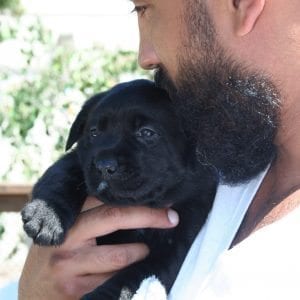
At 4 weeks, puppies are:
- Introduced to training methods verbal with lure, target, pro-offer, just verbal
- Exposed to distractions
- Accompanying Warriors and staff on field trips carried in special puppy slings
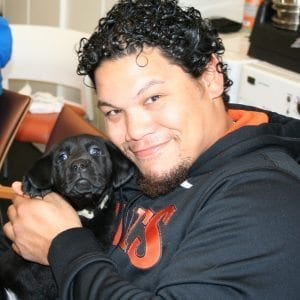
At 4-8 weeks, puppies are:
- Introduced to training methods such as verbal, lure and target
- Beginning to be exposed to distractions
- Accompanying Warriors and staff on field trips carried in special puppy slings
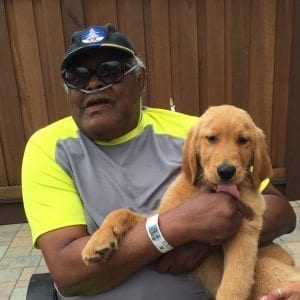
At 12 weeks, puppies begin:
- Learning basic commands like sit, down, stay and touch
- Practicing loose leash walking
- Have settled into their official PPH training site
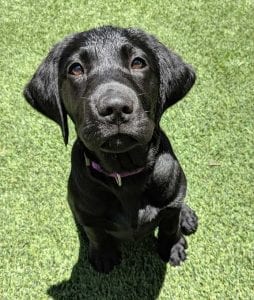
At 4 months, training continues and pups:
- Begin attending Canine Assisted Warrior Therapy sessions
- Now walk on their own during field trips and VA visits
- Introduced to 20-30 commands

At 6 months, public training starts and pups:
- Begin doing field trips with their puppy parents
- Master their basic obedience
- Work on their commands in public and home
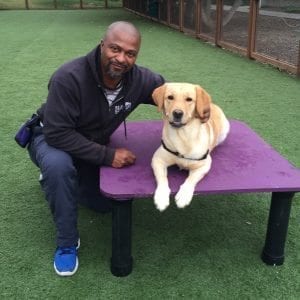
At 12 months, pups are now adolescents and:
- They begin refining the commands they’ve learned
- Wheelchairs are incorporated into their training
- They know upwards of 70 commands
- Start introducing the ADI public access test to the dog with multiple handlers
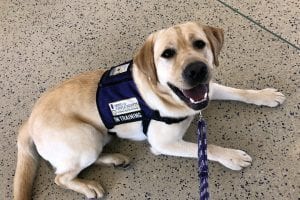
At around 24 months, pups are now ready to become assistance dogs and:
- Training is finalized and they master advanced commands
- Pups are matched with their Warrior or handler
- Pups know all commands and can perform them on first verbal request

SERVICE DOGS
We place service dogs with Service Members and Veterans facing challenges such as:
– Mobility issues. Our dogs can help with tasks such as: retrieving items, pushing buttons for elevators and doors, turning lights on/off, plus many more.
– Diagnosed trauma-related conditions (PTSD or TBI). Our dogs help by performing a variety of tasks specifically designed to reduce symptom severity.
Through our thorough application process, our qualified staff determines if a PPH service dog will be a fit for your specific needs.
FACILITY DOGS
We place facility dogs with facility managers who work in care facilities that serve Service Members, Veterans, and/or military families. They are also placed with counselors, psychologists, psychiatrists, occupational therapists (and other specialists) who serve Service Members and/or Veterans and wish to integrate a dog into their clients’ treatment plans. Facility dogs provide invaluable benefits to the populations they serve, but they do not meet the legal definition of a service dog and do not have public access rights outside of their assigned facility. Facilities must serve at least 50% of military-connected individuals.
Paws for Purple Hearts is the first program of its kind to offer therapeutic intervention for Veterans and active-duty military.
Under the guidance of PPH instructors, Service Members engage with specially-bred Golden Retriever and Labrador puppies.
PTSD patient-trainers must overcome their emotional and affective numbness in order to heighten their tone of voice, bodily movements.



 Combined Federal Campaign (CFC) #43093
Combined Federal Campaign (CFC) #43093